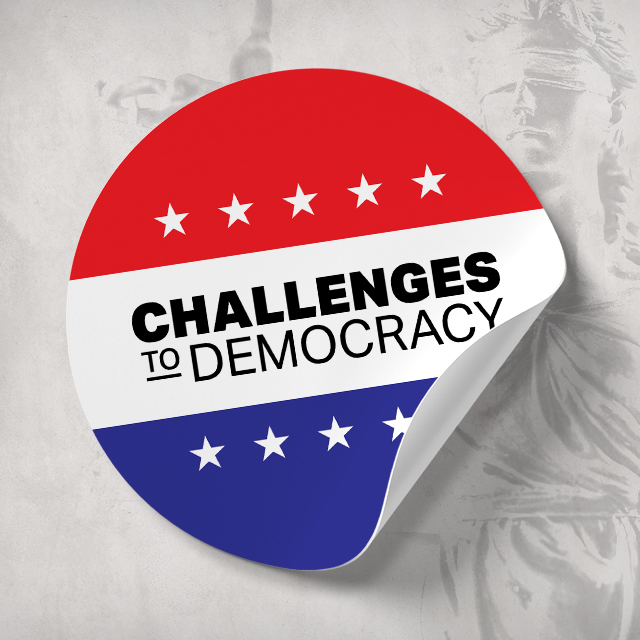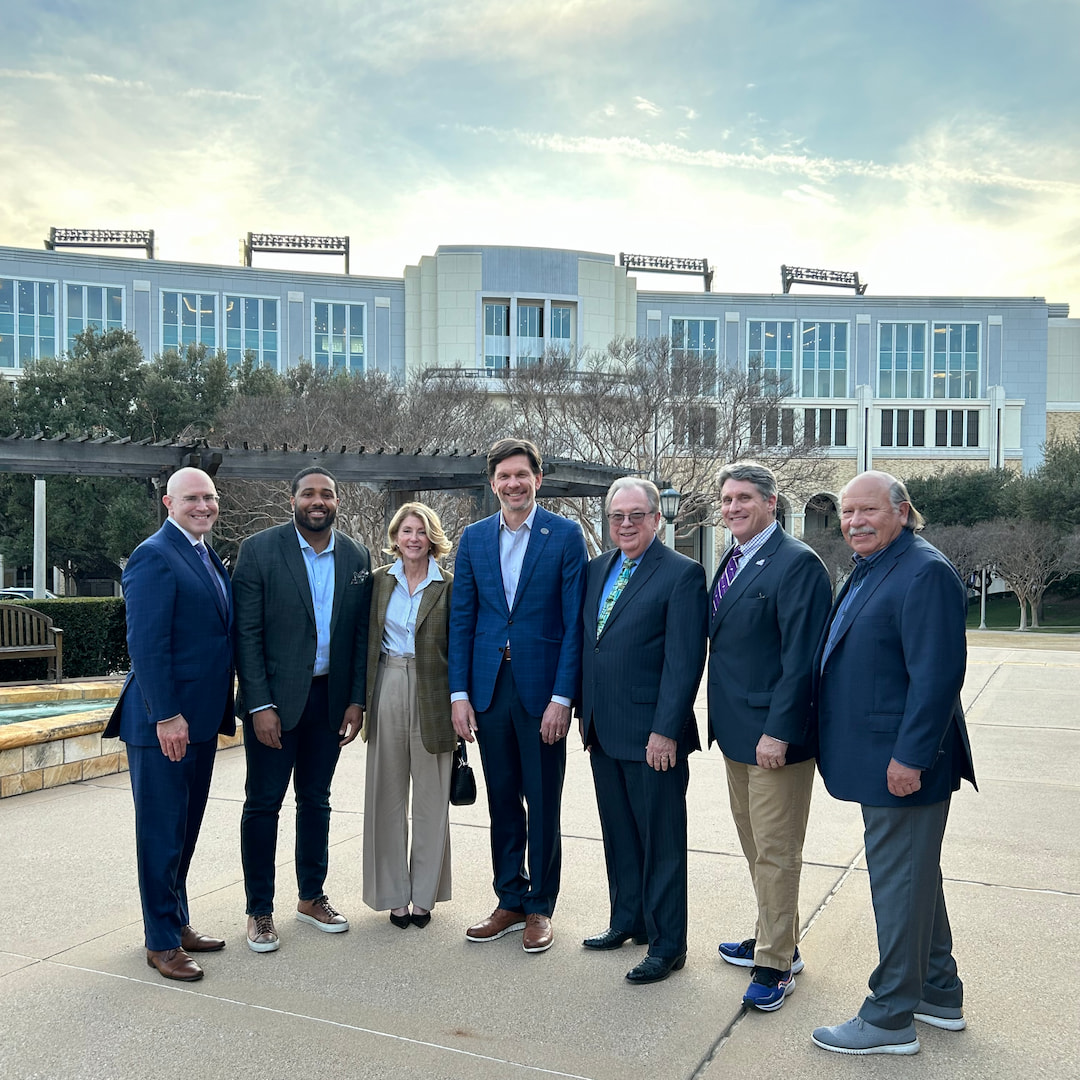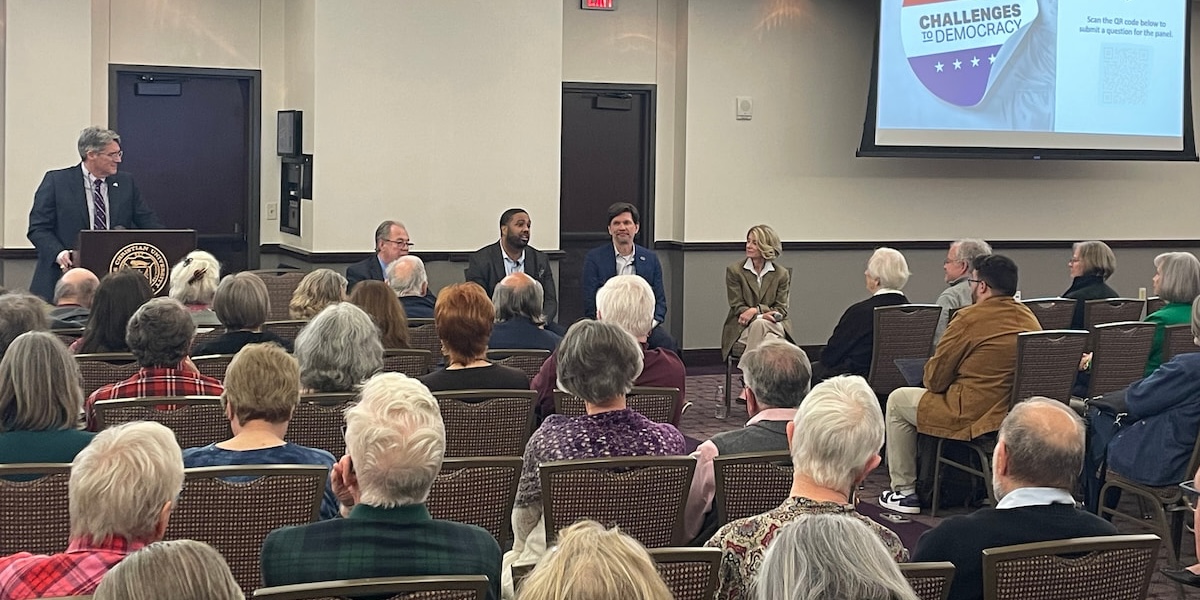Politics in America has become increasingly partisan with a growing unwillingness to consider working with colleagues across the aisle. The party-first nature of the current political landscape — and how to fix it — was the topic of “Challenges to Democracy,” a moderated, bipartisan roundtable hosted by the John V. Roach Honors College on Jan. 31 at the Dee J. Kelly Alumni & Visitors Center.

The panel featured current and former elected officials, including:
- Brian Byrd, former Fort Worth City Council member;
- Wendy Davis, former state senator and senior advisor to Planned Parenthood Texas Votes;
- Glen Whitley, retired Tarrant County judge;
- Jared Williams, Ph.D., Fort Worth City Council member, District 6.
Keith Gaddie, Ph.D., Professor and Hoffman Chair of the American Ideal in the AddRan College of Liberal Arts, moderated the event.
“Our goal was to bring together people involved in politics and have a conversation about ways to bring back civil discourse, bipartisanship and a constructive democracy,” said Gaddie.
“Challenges to Democracy” was born from a desire within the TCU community for a forum on the topic. A group of alumni who gathered from time to time to discuss democracy connected with Don Mills, the former vice chancellor for student affairs, who conceived a formal, in-person panel discussion.
Insights from the Panelists

Gerrymandering, common decency and a refusal to compromise on legislation were cited as three of the biggest issues facing American politics today.
“We have to be able to disagree without being disagreeable,” Byrd said, as he and Williams both called for more civility in political discourse.
Davis identified gerrymandering — manipulating electoral boundaries for political advantage — as a significant pressure point on today’s voters.
She discussed the current process of redistricting and how it “conditions people to believe their votes don’t matter.”
“The only way to fix it is to have objective redistricting…and to make it easier for people to vote,” Davis said. She cited Colorado’s voting rights as examples of accessible voting; the state allows voter registration on Election Day and mails ballots to all constituents so they can choose to vote by mail.
A Student’s Perspective
According to Gaddie, the roundtable offered several important takeaways for students.
“College students today have lived their entire lives with highly polarized politics, political parties that can’t get along and government shutdowns,” Gaddie said. “One thing they learned during the roundtable is that you must compromise for progress. You don’t always get your way.”
Senior Ashle Perez, who is majoring in political science, attended the roundtable because she was eager to hear other perspectives.
“I appreciate that the responses were fairly raw,” she said. “Usually, when there’s a speaker at an event, they’re delivering a rehearsed speech or presentation. I enjoyed witnessing the speakers work through and express their thoughts.”
At the end of the evening, Perez came away affirming that democracy is inherently subjective.
“A true democracy does not exist,” she said. “However, there can be a general consensus as to what democracy signifies.”
The Path to Progress
Gaddie said that moderating “Challenges to Democracy” reminded him of a very important point: At the local level, people who enter politics tend to be dedicated to service and care very much about their communities.
“They’re really sharp people,” he noted. “They could be doing other things, but they chose to take on a job that will never pay them what they are worth.”
As for making American politics more collaborative, Gaddie sees potential solutions in cities that actively promote community engagement.
“Anything that puts people in contact with others and gets them out of their living rooms and walking in their communities is huge,” he concluded. “The reality is, when you let municipalities have some latitude to do things, good things can happen.”
Watch the Panel
The Honors College’s “Challenges to Democracy” panel is available to view on Facebook.
